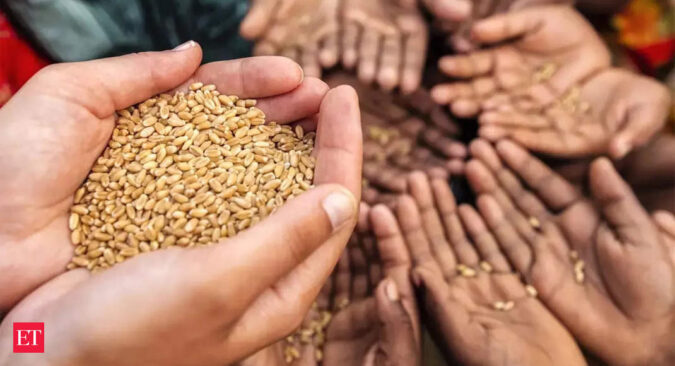The secretary stressed that fair price shops should move with time and become “modern outlets” and said these ration shops dealers can start functioning as common service centres (CSCs). Already 60,000 dealers have become CSCs and they could also be banking correspondents.
The Centre has written to States to allow ration shop dealers to keep non-PDS items such as FMCG products and many states have already allowed, he said.
To reduce the transport cost and save in food subsidy, Chopra said the government has engaged IIT Delhi and World Food Programme for optimisation of routes to these fair price shops.
Briefing media about the workshop, the food secretary noted that there are about 5.3 lakh ration shops in the country, out of which around 1 lakh are being run by cooperative societies and self help groups, while another about 10,000 ration shops by Panchayats. More than 3 lakh of ration shops are being run by private individuals.
The secretary mentioned that these ration shop dealers have complained in the past that just the distribution of foodgrains under the National Food Security Act (NFSA) was not really financially viable proposition for them.
Chopra highlighted that the central government has already enhanced the dealers margins and also encouraged states/UTs to pitch in on their part. “What we have been trying to do is to ensure that they are able to become multi service organisations. So, the fair price shop dealers should not remain the dealers for the essential commodities under the NFSA but they can also tie up with other organisations,” he said.
The ration shop dealers can tie up with organisations such as the CSCs, Chopra said.
“This is being done in many states, particularly Gujarat which is giving very good result where some of the fair price shops dealers who have tied with the common service centres have actually been earning almost Rs 50,000 per month, which I think is a reasonably handsome amount for any FPS dealer,” the secretary said.
The effort has been made to ensure that ration shop dealers are able to connect with the customers and give them better services.
Chopra said the government has also started an initiative to develop 75 models ration shops. These model shops could have waiting space, CCTV cameras, toilets and drinking water facilities among others.
The secretary also mentioned that there is a demarcation of responsibilities under the NFSA between the state government and the Centre.
The Centre ensures that foodgrains are distributed and are delivered to the dealers points.
He said the licensing, its regulation, its monitoring and supervision, and its smooth functioning is the responsibility of the state government concerned.
“So we are partnering with various agencies, state governments of course are a major stakeholder, to ensure that these fair price shops overtime become a vibrant and a very financially viable setup,” Chopra said, adding that the FPS should move with time to become a more modern outlet than it has been in the recent past.
